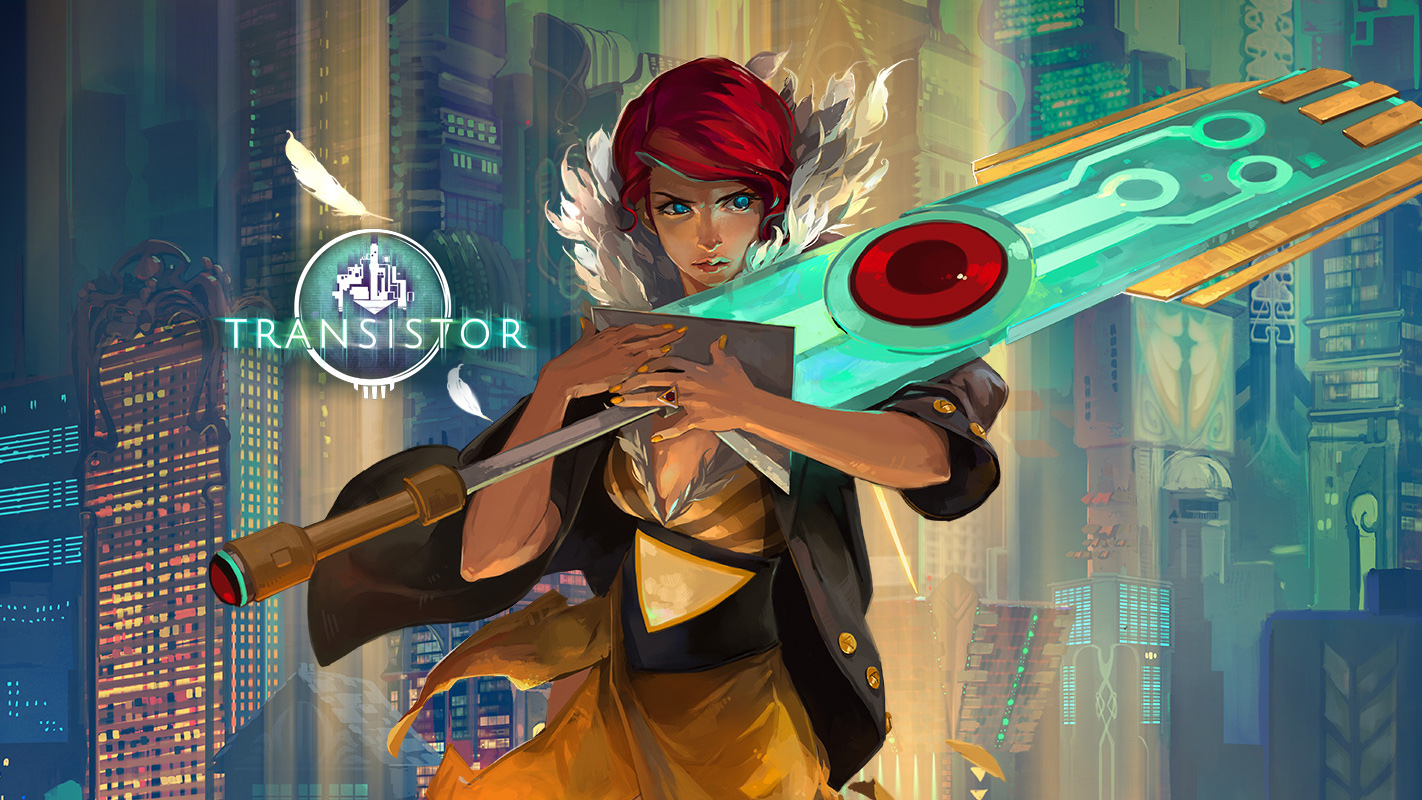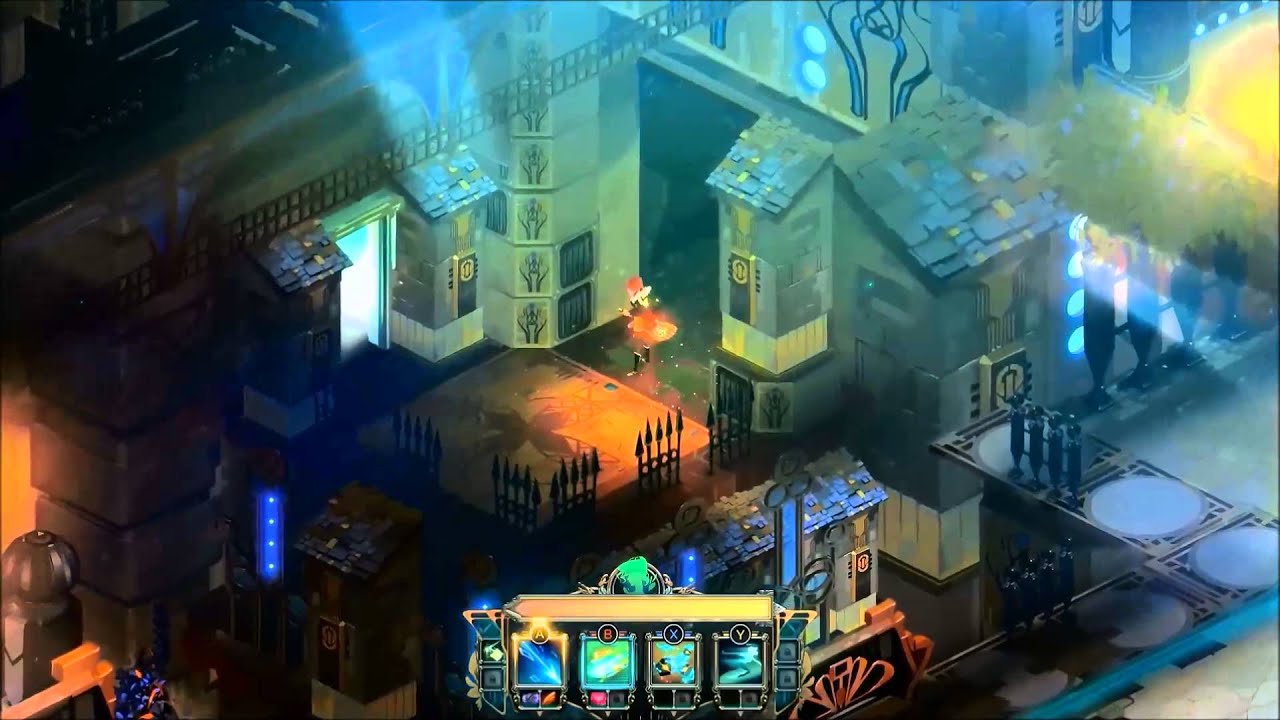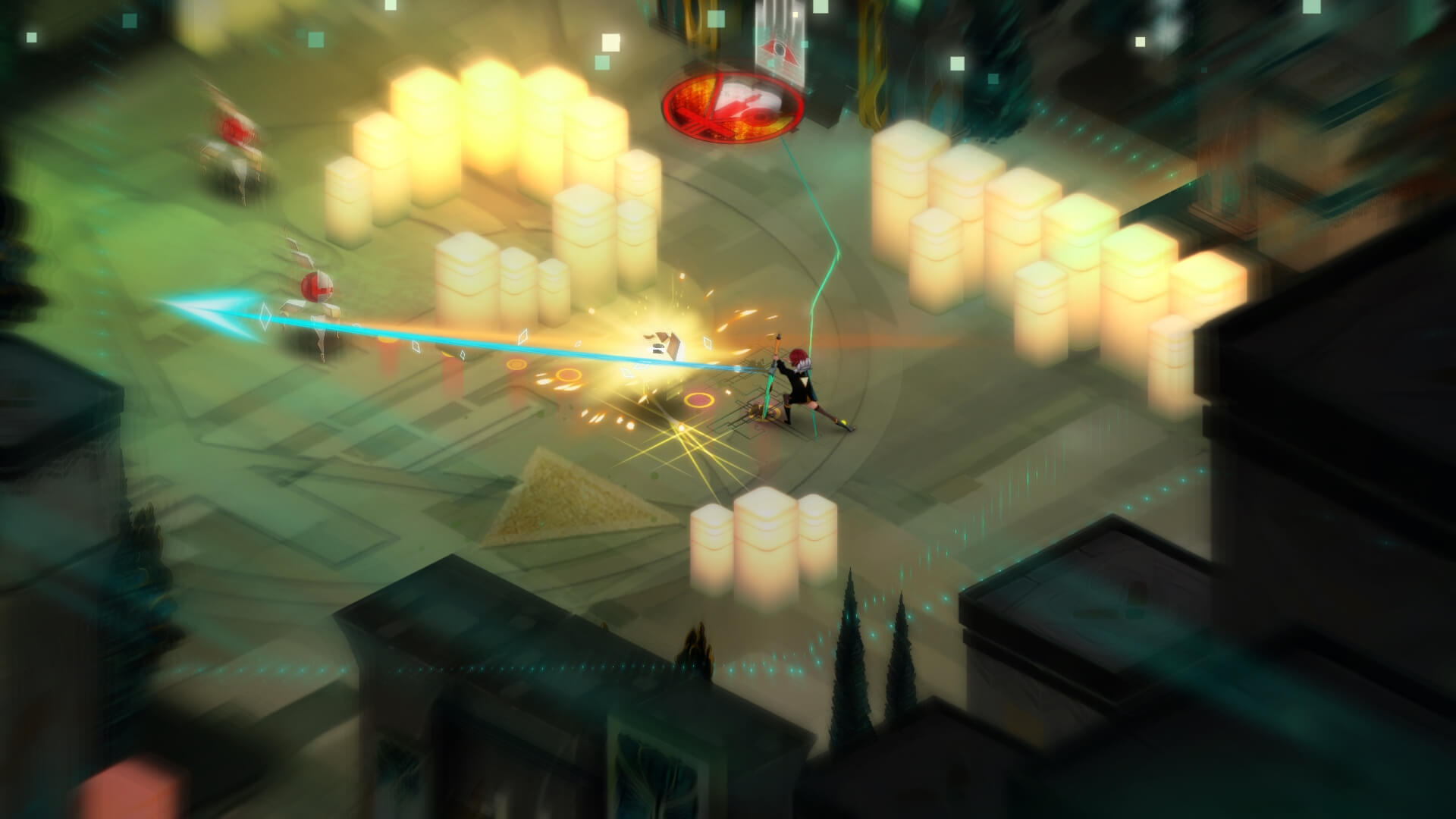Backlog Review: Transistor
Sat, Jun 1, 2019
by Ray Fisher
Read in 4 minutes

Transistor, for those of you not in the know, is the second game from esteemed indie developer, Supergiant Games. Their first, Bastion, was a break-out hit, and they continue to hit all the right notes here. Taking place in the futuristic city of Cloudbank, you play as the eponymous Red, Cloudbank’s endearing songstress, after an attack against her with the Titular sword, the Transistor, has left her boyfriend dead and her without her voice. Pulling the sword from her lover’s chest reveals that he still lives on within the sword. Vowing vengeance against the Camerata, the group responsible, Red hefts the Transistor and heads out to see it through.
The first thing that immediately struck me about this game is the artstyle. Presented in an isometric view, the game is rife with bright, painterly colours, showing off Cloudbank as a modern utopia, albeit with its share of secrets and lonely, empty streets. Every location from the Goldwalk to Junction Jan’s has it’s own unique flair, as the residents of Cloudbank vote on how the city should appear, thanks to the power of the Process.

Red is very soon swept into combat, where the power of the Transistor becomes evident. Able to absorb the residual power of those… Processed, they become abilities that Red can use as attacks, modifiers to those attacks, or passive abilities. This is where Transistor really shines. With a total of 16 different abilities (representing 16 deceased Cloudbank citizens) that can be mixed in match in any combination you see fit, Red has a nearly endless arsenal at her disposal to dispatch enemies. Crash(), for instance, the first ability Red receives, is a close-range melee attack that can be charged for a stronger effect when equipped in the ‘active’ slot. When equipped in an upgrade spot, however, it will add a stunning effect to other abilities.To aid in this, the game takes on an RPG feel with Red’s ability to plan her actions, known as Turn(). This allow you to decide the best tactic to take on enemies, then execute that plan. For example, Red can activate Turn(), walk to an enemy, use Crash three times and retreat to a safe place. Once planned and executed, Red will move faster than the enemy can track, execute her attacks and retreat. The downside to this is that Red is often unable to use any abilities while Turn() is recharging. For such a straightforward combat system, Transistor offers up a tactical challenge unlike most anything I’ve played.

Backing all the tight-paced action is a wonderful, soulful soundtrack that is part jazz, part rock, and entirely haunting, with vocal provided by Ashley Barrett. The game is worth playing for the music itself, and the soundtrack has had sales north of 200,000 copies, according to Billboard. Always setting the proper mood for each location, it seems that the music is meant to be Red’s songs, perhaps from her previous albums.
The story in Transistor, while entertaining, is disjointed and only told in pieces, with it mostly being left to the player how much of Cloudbank’s troubles they discover. The Process, a faceless enemy by design is always pressuring Red, and becomes more desperate in its attacks as you progress, with the final encounter being the most unique in the game. If you take the time to find the story in here, Transistor tells a tale of those trying to do the right thing the wrong way, and how a few influential people can raise a population to new heights, or decimate it by the same actions.
While somewhat of a minimalist game design, Supergiant Games managed in Transistor to provide us with a top-tier experience that provides endless attack combinations, beautiful art and an entrancing soundtrack. If you’re looking for a game that you can act as an entertaining pallet-cleanser between larger experiences, I highly suggest Transistor.